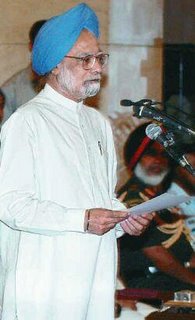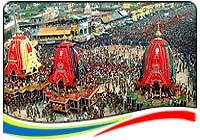
With seven hundred million voters (possibly, two hundred million of them illiterate) and a colorful cast of leading characters, Indian elections are one of the most fascinating events of our times.
Sonia Gandhi: Sixty something Italian, widow of a Prime Minister, cannot speak Hindi clearly, represents the heart of the Hindi belt, reticent and operates by consensus.
Mayawati: Dalit woman, unsophisticated and aggressive, unmarried, narcissist and uses the administrative machinery to build huge statues for herself, weighs herself in gifts of gold on her birthdays and accumulator of wealth.
Advani: Refugee from Pakistan, erstwhile RSS member, loves Hindi movies, chief claim to fame being that he rode a truck decorated as a chariot to demolish Babri Masjid, 81 years old and using the full power of the net to promote himself.
Manmohan Singh: Ph.D. from Cambridge, economist, brilliant and honest, has had three heart surgeries, lost the only election he fought, bureaucrat extraordinaire.
Jayalalitha: Ex-film star,voluptuous, rumoured to be a special friend of the earlier Chief Minister of the state, capricious, intelligent and charismatic.
Naveen Pattnaik: Sixty year old Doon school educated son of an earlier Chief Minister, friend of Jackie Kennedy and assorted New York socialites, unmarried and honest, author of a book on Indian plants,cannot speak the language of the state he is the Chief Minister of.
Narendra Modi: Risen from RSS, Chief Minister of Gujarat during the worst communal carnage in Indian post-independence history and accused of hatred towards Muslims, demagogue and strong administrator, poster boy of Hinduvta.
Prakash Karat: Marxist ideologue , never fought an election, opposes anything American.
Mulayam Singh Yadav: Ruled the largest state in the country, wrestler and rustic, promotes film stars and socialites in the party, wears dhoti himself and master of caste politics.
Lalu Prasad Yadav: Had the gumption to make his primary school educated wife the Chief Minister of a large state, supposedly turned Indian Railways around, extraordinary talent in using humour to strengthen his position, breeds cows in his official quarters and father of nine children.
Rahul Gandhi: Son, grandson and great grandson of Prime Ministers, shy and soft-spoken, still learning the art of politics , loves bikes and dimpled, thirty-eight years old and bachelor.






